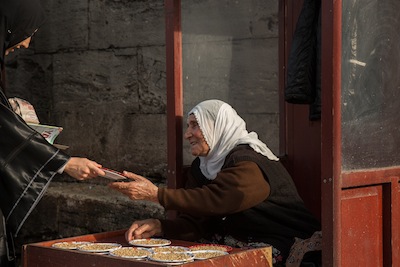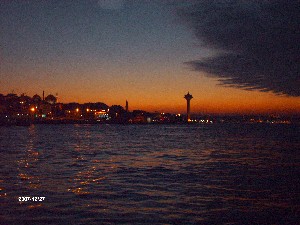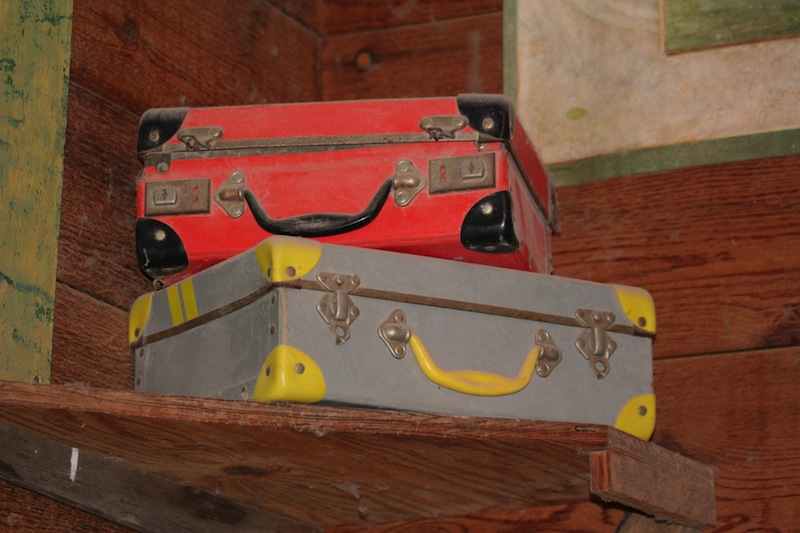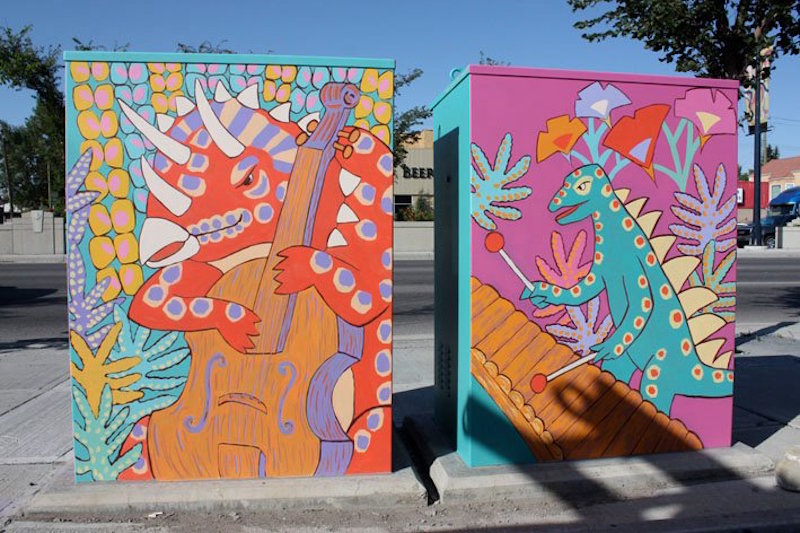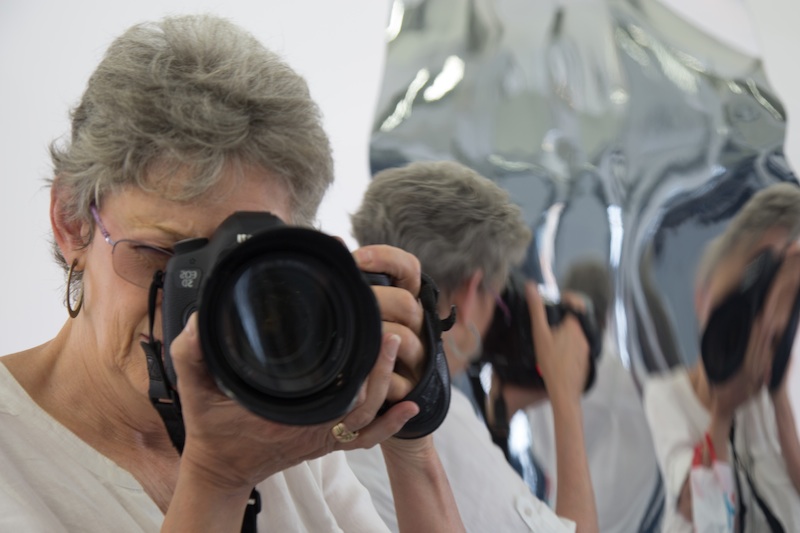
You are about to read the amazing story of an American woman who followed her husband abroad and shaped a life full of meaning. Linda was the first woman to open and manage a store in Istanbul Gran Bazaar, The Crazy Lady’s Place, but that’s not her only achievement – all through her life abroad, she managed to reinvent herself and always be in touch with the hosting cultures and populations, turning her curiosity into a means to create and enjoy the countries where she happened to live. Thank you from the bottom of my heart, Linda, for this incredible interview, the time you took to answer my questions, and for being such an inspiring expat woman. Thank you also for the beautiful photos that are the perfect complement to your story.
Claudiaexpat
You have lived abroad since 1973, and in countries as diverse as Lebanon, Morocco, France, Pakistan and Saudi Arabia – what took you around so much?
Like most expat women I was the ‘excess baggage’ or ‘trailing spouse’ accompanying my husband wherever he was posted. Our first overseas adventure (Turkey) was courtesy of the US Air Force and after that thanks to the US Department of State (Foreign Service). In 1997 my husband retired from all of that and we moved ourselves permanently to Istanbul and started the next phase of our life.
 When you started relocating back in ’73, things were very different from today, there was no Internet! How did you get organised to get infos on your new country, and would you say there was something good in not having all the immediate connectivity we have today?
When you started relocating back in ’73, things were very different from today, there was no Internet! How did you get organised to get infos on your new country, and would you say there was something good in not having all the immediate connectivity we have today?
What an interesting question! In 1973 we were sent to Turkey and like most Americans, I knew absolutely nothing about the country, its history, or its culture. So I went to the library and took out the only two Turkish-flavored books that they had. I don’t remember exactly which ones they were, probably The Turks by David Hotham and The Sultans by Noel Barber, but they were not very helpful. We also corresponded with the person we would be replacing (remember real letters?), but that, too, was problematic as we were fed a lot of mis-information, not because anyone was deliberating trying to mislead us, but because those who were writing had not bothered to immerse themselves in the culture and were just passing on the expat lore.
We had a safety net as we were to live on an American base (complete with all the amenities) where most folks didn’t worry about getting any information about the country outside the fence but once we arrived, I spent a lot of my time escaping and exploring trying to understand where I had landed.
I never followed a normal career path and did whatever presented itself that sounded interesting.
Had I had the wealth of knowledge that is so easily available today I might not have had the incentive to go out searching. I also might not have learned that I should not buy into someone’s else take on a country. Those lessons were good ones to learn at the beginning of our expat life and ones that have helped me in every move since.
You told me you have managed to work in all countries you have lived in. Congratulations! Can you tell us a bit about how you got organised work wise? Did you always follow one professional line or did you adapt your career to the countries you found yourself in each time? What country do you remember with most fondness as far as the work experience is concerned?
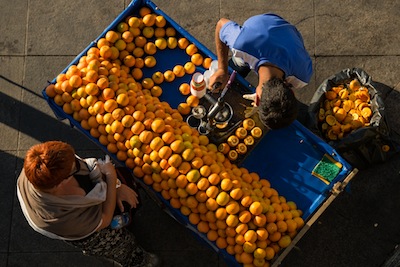 I have been blessed (or cursed!) with not having a real career. I started out as a music major (organ) and ended up with a degree in English Literature and didn’t have a clue what I would do with it! So as I moved from country to country I was open to almost any type of job and relished finding something totally new each time. I was lucky in that at many of my posts I was able to find opportunities within the system in which my husband worked. However, I soon realized that having some sort of a ‘portable’ career, i.e. one that I carried with me and which wasn’t dependent on anyone else was critical to staying employed.
I have been blessed (or cursed!) with not having a real career. I started out as a music major (organ) and ended up with a degree in English Literature and didn’t have a clue what I would do with it! So as I moved from country to country I was open to almost any type of job and relished finding something totally new each time. I was lucky in that at many of my posts I was able to find opportunities within the system in which my husband worked. However, I soon realized that having some sort of a ‘portable’ career, i.e. one that I carried with me and which wasn’t dependent on anyone else was critical to staying employed.
At our first posting I began learning what would become one of my portable careers – dance. In every posting afterwards, among other jobs, I always taught and performed and in many postings that was my intro to the local population, especially in Saudi Arabia where I was immediately accepted (and hired) by the Saudi women, something that would never have happened otherwise. When we had a brief stay back in the States I worked as a desktop publishing coordinator, a position that forced me to learn a lot about computers, design, and graphics, so the next time we headed out, I found opportunities to teach computers (mainly Word Perfect) and do desktop publishing for others, long before it became possible for everyone to do their own.
So, I never followed a normal career path and did whatever presented itself that sounded interesting. In some posts I supplemented those jobs with my own portable careers, in others I relied totally on my own ‘jobs.’
I learned so many different skills in my checkered work history, but they, and the skills I already had, all came together when we ‘retired’ and I opened The Crazy Lady’s Place in Istanbul’s Grand Bazaar. I actually felt as though everything I had ever done before was just prep work for doing this, although I hadn’t realized it at the time.
Not counting this final expat location, I would say that my work life in Saudi Arabia was the one of which I was the fondest. There I ran two very successful businesses (three if we count dance!) which were the final training ground for The Crazy Lady’s Place.
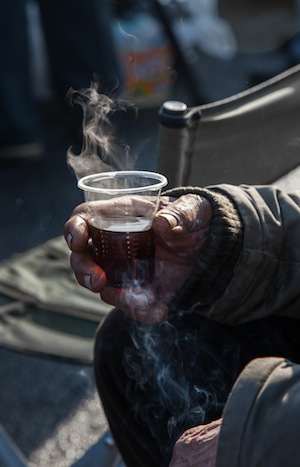 Oh wow, we got to the shop in the Gran Bazaar Linda, I am thrilled! I imagine you have told the story over and over again, but it does not happen every day to speak with an American woman who was the first expat ever to open a shop in the Gran Bazaar of Istanbul!!! So be patient, and please tell us as much as you can about it… How did you get the idea? Did you have to go through a bureaucratic nightmare to open it? What did you sell? How long have you had the shop? What were the happiest moments, and what the hardest? How did people around you in the market view you?
Oh wow, we got to the shop in the Gran Bazaar Linda, I am thrilled! I imagine you have told the story over and over again, but it does not happen every day to speak with an American woman who was the first expat ever to open a shop in the Gran Bazaar of Istanbul!!! So be patient, and please tell us as much as you can about it… How did you get the idea? Did you have to go through a bureaucratic nightmare to open it? What did you sell? How long have you had the shop? What were the happiest moments, and what the hardest? How did people around you in the market view you?
When we were headed to Istanbul to begin the next chapter of our lives, I was trying to decide whether to open a desktop publishing business or a textile/gift item – both extensions of what I had just done in Saudi Arabia. I decided that the stress level was too high in publishing as I would constantly be working under deadlines over which I had no control, so I started to play around with the idea of a textile/clothing/gift shop producing items of the type I always searched for when traveling to new places – i.e. something that preserved the traditions of the country, but done tastefully and with quality so that the recipients wouldn’t hide it in a drawer until the next time the giver visited.
To test out the idea I spent about 3 months making some sample products – clothing and gifts – and then invited about 12 expat women for an evening of feedback. It was a great evening that boosted my confidence and gave me a lot of ideas. So then off we went to Istanbul and I began the process of producing items. I had no budget, so I used my dance career to finance the buying of raw materials, teaching several classes a week and then after being paid each Friday, buying the materials for the next project on which I would then work on all week. It took a year to produce enough stock to open and in 1998 I opened in Arnavutköy, a small village of Istanbul on the Bosphorus.
After two years I felt I was ready to open The Crazy Lady’s Place in the bazaar, first consulting my long term close friends in the bazaar all of whom fully supported the idea (that was a big change from 30 years earlier when I jokingly suggested that I would help them out in their shops when I retired and to which they all responded that the bazaar was no place for a woman!).
Turks love foreigners and especially foreigners who love Turkey and the culture
For one year I kept both the Arnavutköy and the bazaar shops open and then closed the Arnavutköy shop, using it only for production. (The shops in the bazaar are too small to accommodate both sales and all the goods needed to produce.)
After a few years I decided to expand in the bazaar and open a second shop for children. With the exception of a few import stores in the main shopping districts, there were no stores just for kids’ items and certainly not any with a Turkish flavor. And at the same time I decided to open a small shop in the town of Iznik (formerly Nicea) where I had my village house and where I could sell not only my regular items, but also use it as a clearing house for discontinued items.
Now to your other questions. Yes, there was a tremendous amount of bureaucracy, but not necessarily because I was a foreigner. Doing business in Turkey is very convoluted with a tremendous number of rules and taxes which are sometimes contradictory and never easily understood. The paperwork is absolutely insane, the tax structure (65%) even more so, and the rules governing employees put a tremendous financial burden on the employer. Dealing with this side of the business was probably the most frustrating and the most wearing.
I was very well received not only in the bazaar but also in my first location. Turks love foreigners and especially foreigners who love Turkey and the culture, so the fact that I was using traditional items in new ways just fascinated them. And the name of the shop (Deli Kızın Yeri – the Crazy Lady’s place) was an instant draw as it is a play on a traditional phrase in Turkish.
The shop was so unusual that I was constantly being interviewed on tv and in newspapers and magazines, giving me a tremendous amount of free publicity. In the bazaar I am told that I added a touch of class. I did not bargain, did not solicit customers in the street, and changed the window and decor once a week, all rather novel ideas for the bazaar.
I loved working with my staff and spending hours talking with them as we worked. We became each other’s family, celebrating successes and life moments and supporting each other in times of loss or failure.
As to what I sold – just about everything! The premise was to use only Turkish materials (mainly textiles) and motifs in my production. There are some wonderful traditional items such as oya (flowers made with a straight needle and used to edge traditional scarves), yazma (thin gauzy cotton used for headscarves), and basma (small printed cotton usually used for shalwar – baggy trousers) but they had always been used in the same ways. I wanted to give them a new life. I used oya to make jewelry items and to decorate jackets and cards; basma was turned into placemats, stuffed animals for children, purses, etc.; yazma was braided into belts, necklaces, and bracelets and used as lining for one-of-a-kind jackets made with traditional Buldan cloth. I also did napkin rings from hand made glass evil eye beads, children’s measuring dolls made to look like Ottoman children, door drafties and door stops fashioned as traditional Ottoman folks, bookmarks of all sorts, hand painted umbrellas, aprons, cards, purses, belts, headbands, hand made children’s sweaters with Turkish motifs, etc. At any one time there were about 300 different items in the inventory and 95% were made by myself and a very small staff. The remaining 5% were things I found as I traveled around Turkey or which people brought to me and fit my criteria.
Closing was a very hard decision as I loved what I did and although I didn’t realize it at the time, my identity was very linked to the shop.
I loved working with my staff and spending hours talking with them as we worked. We became each other’s family, celebrating successes and life moments and supporting each other in times of loss or failure. Even though it is now 4 years since I closed, we are all still in touch with each other. I also loved the creative side of managing The Crazy Lady’s Place, but unfortunately, finding time to be creative was sometimes very difficult considering all the other demands. And I loved watching people’s reactions to our goods and the smiles that appeared when people walked into the shop.
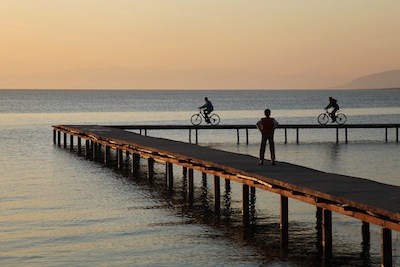 I understand you closed the shop because you retired. Before we say good-bye can you tell us why (if there is a why) you decided to remain in Istanbul, and what are your projects now?
I understand you closed the shop because you retired. Before we say good-bye can you tell us why (if there is a why) you decided to remain in Istanbul, and what are your projects now?
I closed The Crazy Lady’s Place mainly due to economic reasons. I had expanded (using up a lot of the spare cash) just as the economy began to fall apart. My costs kept escalating and the market would not bear an increase in the sales price of my items. The culture here tends to copy rather than come up with original ideas, so poor quality reproductions of my items were appearing on the market. And I had never been able to get the business to the point where I didn’t have to be involved in every tiny little step so there was never a break (I literally worked 7 days a week, usually from 7:00am to 11:00pm). Closing was a very hard decision as I loved what I did and although I didn’t realize it at the time, my identity was very linked to the shop. However, my body was beginning to rebel (although I didn’t notice until I stopped) and I spent the next 2 years trying to get it back on track.
I can not envision myself living anyplace other than Istanbul. Since I first arrived in 1973 the city (and country) has had an inexplicable hold on me. So, I’m here to stay.
…and somehow I never lack for things to do! My two big passions now that I have time are travel and photography. Travel requires some planning and budgeting, but photography is something I can do everyday and it’s a great way to explore and meet people. I had done photography many, many years before in Paris but then life intervened and I didn’t pick up a camera until a few years before I retired. I found I was looking at the world as though I was planning to photograph it and that meant to me that I needed a creative outlet that was just for me.
Linda Caldwell
Istanbul
December 2014
Enjoy Linda’s work:
www.delikizinyeri.smugmug.com (website)
www.delikizinyeri.tumblr.com (daily photographic musings)
www.delikizinyeri.wordpress.com (photo blog)
www.flickr.com/photos/22909854@N04/ (current shooting)
www.blurb.com/b/4528018-my-istanbul (book)
Linda won the third prize of the Expatclic Photo Competition “My favourite spot in my host country“. Her beautiful photo is part of the Expatclic Calendar 2015.

